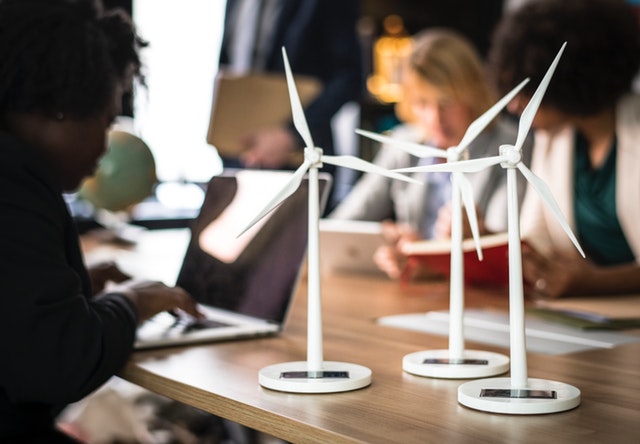Best picks for a read, watch and listen
Keeping informed about the climate crisis is crucial to making an impact, whether that’s having discussions with others or making changes to our habits. However, with lots of resources out there, it can be difficult to know where to begin! We asked the members of our University of Exeter’s Green Rewards programme to share some of their favourite environmental books, films and podcasts to help you out. So in this blog we share some of the best.
This is a great list of resources for anyone wanting to dig a bit deeper into sustainability, as well as improving your all-round knowledge. We’ve organised the list into different resource types for easier use: find books under ‘Read,’ films and documentaries under ‘Watch’ and podcasts under ‘Listen.’
Read
Let My People Go Surfing: The Education of a Reluctant Businessman - Yvon Chouinard
Businessman, environmentalist and founder of Patagonia- Yvon Chouinard’s autobiography shares his management techniques and company values. Much of which has made Patagonia one of the most respected and sustainable companies on Earth.
The Uninhabitable Earth: Life After Warming – David Wallace-Wells
Covering droughts, floods, wildfires and economic crisis – in this book David Wallace-Wells looks to the future, delving into the consequences that climate change could have on every aspect of our life.
Animal, Vegetable, Miracle: A Year of Food Life – Barbara Kingsolver
This is the story of a family who vow to only eat food grown locally or on their own land for a whole year. An experiment into how we can reduce our carbon ‘food’print and why we should pay more attention to the journey our food is taking to get to our plate.
Losing Eden: Why Our Minds Need the Wild – Lucy Jones
A self-care book that looks at why we need nature, why it’s so important for our mental wellbeing and how we can become more connected to nature in an increasingly technological and fast-paced world.
A Life on Our Planet: My Witness Statement and a Vision for the Future – David Attenborough
Reflecting on a life-long career exploring and documenting the natural world, David Attenborough seeks to explain how climate change came to be and how we still have time to make amends.
Watch
Online catalogue of free documentaries and impact films.
Before the Flood – Amazon Prime
Before the Flood is a 2016 documentary film starring Leonardo DiCaprio as he travels the world to experience the effects of climate change first-hand.
A Perfect Planet – BBC
A Perfect Planet is a 5-part documentary series with David Attenborough explaining how volcanoes, the Sun, weather and oceans all interact to create our perfect Earth. The final episode focuses on humans and their impact on the environment.
Kiss the Ground – Netflix
An environmental documentary film that delves into soil regeneration as a way of slowing the effects of climate change. By using plants, trees and alternative farming techniques, we can allow biodiversity to thrive and healthy soil can be effectively used to reduce atmospheric levels of carbon.
The Ugly Truth of Fast Fashion – YouTube
Hasan uncovers the ugly truth of fast fashion and how companies such as H&M and Zara are encouraging us to buy more new clothes than ever before to stay ‘on trend’. A great watch to understand how fast fashion is contributing to climate change and how we can adjust our buying habits.
Listen
The Organic Gardening Podcast – Chris Collins & Sarah Brown
Providing tips and advice on organic growing and gardening. This podcast covers various topics from protecting important insects to successfully sewing seeds and planning your planting.
The Sustainability Agenda – Fergal Byrne
The weekly podcast discussing the big questions in sustainability right now. Conversations with doctors, philosophers, professors, climate activists and more.
Green Dreamer – Kamea Chayne
A podcast to support, educate and unite people to learn about restorative and regenerative work that is already occurring. With the aim to inspire others to create change in whatever capacity they can.
For What It’s Earth – Emma Brisdion & Lloyd Hopkins
Covering big ideas within sustainability, climate change and environmental issues but broken down into understandable bite-sized chunks.
A big thank you to everyone who sent in their suggestions. We hope this is enough to keep you busy for some time!
Do go ahead and share this page with anyone you feel would benefit or appreciate these resources. We also share regular environmental blogs and updates on our page and through The Net Zero Challenge.
Happy reading, watching and listening!


